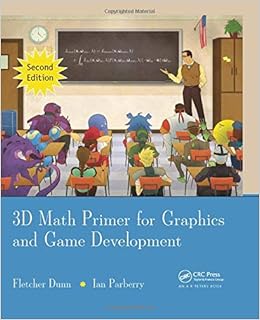game development is very, very, very math heavy, from top to bottom. Especially in 3D games. Like, you might be able to kind of get away with just fiddling with numbers, but you'll hit a huge wall very quickly. The most common type of math you'll primarily run into is matricies math, the fundamental calculation used to navigate 3D space are various transformations. Without knowing how matricies work, and why they work, and how pack values into them, you'll become lost super easily. Even if you just limit yourself to euler math, you'll run into gimble lock. You'll wonder, "why is it impossible to rotate from this position to this position??" at which point you'll have to dive into quaternions, 4th dimensional transformations.
Study up on linear algebra and vector calculus, it'll provide the most utility. To grasp either of those, you'll need a solid understanding of trigonometry and geometry, of course. Vector math is everywhere in game dev.
Similarly, study up on boolean algebra, it's very important.
If you want to get into signal processing, which is very useful for multiple types of data analysis, you need to start studying up on fourier transformations.
For specific books, I would very much recommend starting here:
3D Math Primer for Graphics and Game Development [Dunn, Fletcher] on Amazon.com. *FREE* shipping on qualifying offers. 3D Math Primer for Graphics and Game Development
www.amazon.com
Also, grab a good book on statistics and probability. It'll help in multiple ways in life. Dirty secret: Convolutional AI is just very, very applied probability.
Well, i would argue that is one of the ares where the engines abstract enough so that you dont need to be as good anymore.
(As someone who had to make a 3d Animation with webgl and javascript, and who dablet a tiny bit in these engines)
And yeah, math is required, btu not even remotely as much as it was even 10 years ago.
(Edit: i should have read the thread further... i have to say, you kinda hammered him with a lot low level stuff that is not needed it you just start with a simple homemade game with an engine today. but shifting is really overkill, if you dont need to optimize or develop really low level. For him learning engines/tools is way more usefull then low level stuff int his case)
With that said....
What is the problem with math here? since the same thinking proceses will be needed for Computer science/game development.
Vizualizing what you want to do, geting concrete in describing these things, and formulation a algorythm to do the stuff you want to do.
Getting aware of the limitations of your system, and developing either with them in mind, or around them.
The best would be to try some of these basic online courses with Algorythms (search, sort,...) and Data structures (lists, arrays, trees,...).
If you get these, then the math for game development should not be a problem.
if these are to hard, then creating interacting game systems will not be possible.
Except you just want to make a 2d memory puzzle. This is probably doable without math.
In the end: at least some math is required, programming is simular to math by itself, and the question is quite broad. Be more concrete with your question, and maybe we can help you some more with "do i want to do this". As a start, what is your knowledge of computer science?
Hmmm this thread made me curious. Is there a lot of stats in game programming/development? I do a lot of machine learning/ai coding, but the 'math' is nearly entirety statistics - at least for what I do: predictive modeling.
Well, you either can replay the 10-30 hour game every time you change some parameters, or you create statistical models... just think of balancing stat based games like RPGS, TCGs, RTS games...
You cant develop without playtesting, but you dont have the time to playtest everything, like experience curves in different play scenarios and stuff. (mario is probably less stats based on the other hand, and more "tweak the gameplay till it is great, and then build a game around it")






